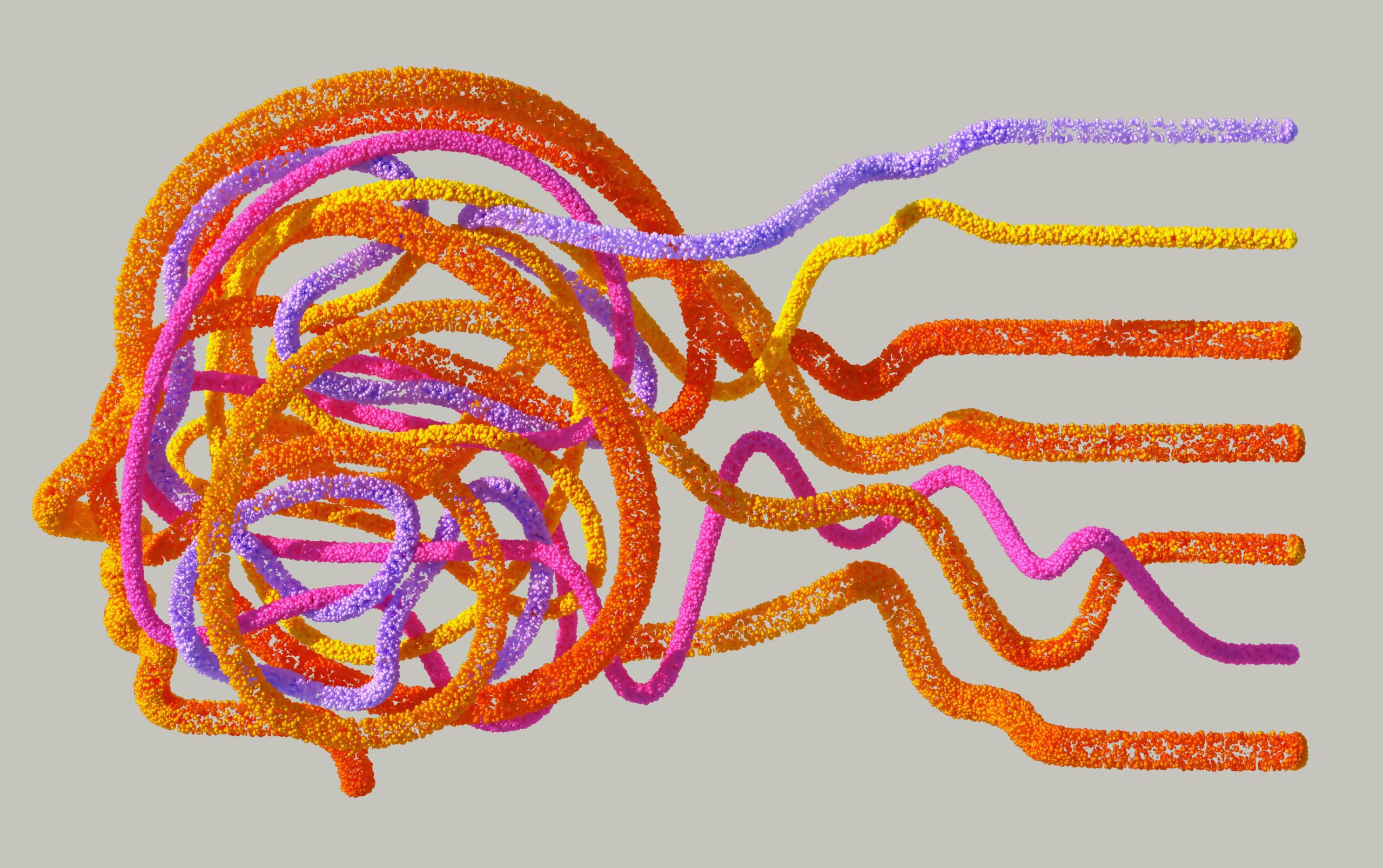In our fast-paced world, achieving mental clarity and sustained focus has become increasingly challenging. The combination of ancient meditation practices with cutting-edge neurofeedback technology offers a powerful solution to unlock your brain’s full potential and transform your cognitive abilities.
Modern science continues to validate what contemplative traditions have known for centuries: our minds possess extraordinary capabilities waiting to be unleashed. Through targeted mental training and technological support, you can develop unprecedented levels of concentration, emotional regulation, and cognitive performance that translate into every area of your life.
🧠 Understanding the Science Behind Mental Enhancement
Your brain operates through complex networks of electrical signals, creating patterns called brainwaves. These waves correspond to different mental states, from deep sleep to heightened alertness. The revolution in neuroscience reveals that we’re not stuck with fixed mental patterns—our brains remain remarkably plastic throughout our lives, capable of forming new neural pathways and strengthening beneficial connections.
Meditation works by systematically training your attention and awareness, creating measurable changes in brain structure and function. Research using fMRI and EEG technology demonstrates that consistent meditation practice increases gray matter density in regions associated with learning, memory, emotional regulation, and perspective-taking. These aren’t just temporary states; they represent lasting structural changes in your neural architecture.
Neurofeedback takes this process further by providing real-time information about your brain activity. This technology allows you to see your brainwave patterns displayed on a screen and learn to consciously modify them. It’s like having a mirror for your mind, enabling you to develop skills that would otherwise remain invisible and difficult to cultivate.
The Meditation Foundation: Building Your Mental Gym
Meditation serves as the cornerstone of mental development, offering a time-tested method for cultivating focus and clarity. Unlike passive relaxation, meditation represents active mental training that strengthens specific cognitive abilities through deliberate practice. Think of it as resistance training for your attention span and emotional resilience.
Core Meditation Techniques for Enhanced Focus 🎯
Focused attention meditation trains your ability to maintain concentration on a single object, such as your breath, a mantra, or a visual point. When your mind wanders—and it will—you gently redirect it back to the focus object. This simple act of noticing distraction and returning attention strengthens your prefrontal cortex, the brain region responsible for executive function and impulse control.
Open monitoring meditation develops a different skill: non-reactive awareness of whatever arises in your experience. Rather than focusing on one object, you maintain broad awareness of thoughts, sensations, and emotions without getting caught up in them. This practice enhances metacognition—your ability to observe your own mental processes—which proves invaluable for maintaining clarity under pressure.
Loving-kindness meditation cultivates positive emotional states while simultaneously training focus. By systematically directing well-wishes toward yourself and others, you activate neural circuits associated with empathy and social connection while building concentration capacity. Studies show this practice reduces stress hormones and increases positive affect, creating optimal conditions for cognitive performance.
Establishing Your Practice Routine
Consistency matters more than duration when building a meditation practice. Starting with just five minutes daily creates sustainable momentum and allows your brain to adapt gradually. Set a specific time each day—many practitioners find morning sessions most effective for establishing the habit and setting a focused tone for the day ahead.
Create a dedicated space that signals to your brain it’s time for practice. This doesn’t require elaborate setup; a quiet corner with a cushion or chair suffices. The key lies in environmental consistency, which triggers associative learning and makes settling into practice easier over time.
⚡ Neurofeedback: Technology Meets Consciousness
Neurofeedback represents the convergence of contemplative wisdom and modern technology. This non-invasive technique measures your brainwave activity through sensors placed on your scalp, translating electrical signals into visual or auditory feedback. By observing this feedback, you learn to self-regulate brain states that correlate with optimal mental performance.
The process operates on operant conditioning principles—your brain receives immediate feedback about its activity patterns and gradually learns to produce more desirable states. Unlike meditation alone, which relies on subjective experience, neurofeedback provides objective data about what’s happening inside your skull, accelerating the learning process significantly.
Types of Neurofeedback Training
Frequency-based neurofeedback targets specific brainwave bands. Alpha training (8-12 Hz) promotes relaxed alertness and creativity, ideal for reducing anxiety while maintaining focus. Beta training (13-30 Hz) enhances concentration and problem-solving abilities, particularly useful for professionals requiring sustained mental effort.
Theta training (4-8 Hz) facilitates deep meditative states and access to unconscious material, supporting creativity and emotional processing. SMR (sensorimotor rhythm) training strengthens the ability to maintain calm focus, especially beneficial for individuals with attention challenges or performance anxiety.
QEEG-based protocols use quantitative electroencephalography to map your brain’s unique patterns, then design customized training targeting specific imbalances or inefficiencies. This personalized approach addresses individual neurological profiles rather than applying one-size-fits-all interventions.
The Synergistic Power of Combined Practice 🔄
While meditation and neurofeedback each offer substantial benefits independently, their combination creates synergistic effects exceeding either practice alone. Meditation develops the fundamental skill of attention control and self-awareness, while neurofeedback provides precise feedback and accelerated learning of optimal brain states.
Practitioners often report that neurofeedback training makes meditation easier and more effective. By learning to recognize and generate beneficial brain states through technological feedback, you develop clearer internal reference points for meditation practice. Conversely, meditation skills enhance neurofeedback effectiveness by improving your ability to notice subtle mental shifts and maintain awareness during training sessions.
Building Your Integrated Training Protocol
Begin with establishing a basic meditation practice for several weeks before introducing neurofeedback. This foundation ensures you’ve developed baseline awareness and attention skills that enhance neurofeedback responsiveness. Once comfortable with daily meditation, add one or two neurofeedback sessions weekly to amplify your progress.
Many practitioners structure their sessions by starting with brief meditation to settle the mind, followed by neurofeedback training, then concluding with integration meditation to consolidate new patterns. This sandwich approach creates optimal conditions for learning while maintaining the contemplative foundation essential for lasting change.
🎪 Practical Applications for Daily Life
The ultimate measure of any mental training lies in real-world application. Enhanced focus and clarity translate into tangible improvements across professional, academic, creative, and personal domains. Understanding specific applications helps maintain motivation and directs your practice toward meaningful goals.
Professional Performance and Productivity
In work environments demanding sustained concentration, trained attention becomes your competitive advantage. Meditation and neurofeedback reduce susceptibility to distraction, enable quicker recovery from interruptions, and support longer periods of deep work. Executives and entrepreneurs report improved decision-making under pressure, enhanced creativity in problem-solving, and better emotional regulation during challenging interactions.
The ability to consciously shift between brain states proves invaluable for knowledge workers. Need intense focus for analytical tasks? Access beta-dominant states. Seeking creative breakthroughs? Transition into alpha-theta ranges. This flexibility transforms how you approach different work demands throughout your day.
Academic Excellence and Learning Enhancement
Students practicing these techniques demonstrate improved information retention, faster learning speeds, and better test performance. Enhanced working memory capacity allows simultaneous manipulation of more information elements, while improved attention control reduces time wasted on distractions during study sessions.
The stress-reduction benefits prove equally important for academic success. Test anxiety, which undermines performance despite adequate preparation, responds particularly well to combined meditation and neurofeedback training. Students learn to maintain calm, focused brain states even under examination pressure.
Athletic and Creative Performance 🎨
Athletes call it “the zone”—that state of effortless peak performance where time seems to slow and actions flow without conscious deliberation. Meditation and neurofeedback training make this elusive state more accessible and reproducible. By learning to recognize and generate the brainwave patterns associated with flow states, athletes develop competitive advantages in high-stakes moments.
Creative professionals discover that training enhances both focused execution and divergent thinking. The ability to shift between concentrated work on specific projects and open, receptive states conducive to inspiration gives artists, writers, and designers greater control over their creative process.
Overcoming Common Challenges and Obstacles 💪
Like any worthwhile skill, mental training presents challenges that test commitment and patience. Understanding common obstacles helps you persist through difficulties rather than abandoning practice when progress seems slow or results feel inconsistent.
The Patience Paradox
Many beginners expect immediate dramatic results, then feel discouraged when progress proves gradual. Brain change occurs incrementally through repeated practice over weeks and months. While some benefits emerge quickly—reduced stress, better sleep—deeper transformations in attention capacity and mental clarity require sustained effort.
Ironically, releasing attachment to specific outcomes often accelerates progress. Approach practice with curiosity rather than demand, focusing on the process itself rather than constantly evaluating results. This attitude reduces performance anxiety that interferes with learning.
Managing Restlessness and Resistance
Your mind will resist training, generating compelling reasons to skip sessions or quit entirely. Recognizing this resistance as normal—even a sign that you’re challenging established patterns—helps you persist. Schedule practice as non-negotiable appointments with yourself, protected from competing demands.
When restlessness arises during sessions, treat it as training material rather than failure. The practice of staying present with discomfort builds mental resilience more effectively than perfectly calm sessions. Each moment of noticing distraction and returning attention strengthens your cognitive control.
🌟 Measuring Progress and Celebrating Growth
Tracking your development maintains motivation and provides valuable feedback about what works for your unique brain. Combine subjective self-assessment with objective measures when possible, creating a comprehensive picture of your progress over time.
Subjective Tracking Methods
Maintain a practice journal noting meditation duration, perceived focus quality, and daily challenges or insights. After several weeks, patterns emerge revealing how practice affects your mental state and life circumstances. Rate your focus, mood, and stress levels on simple scales before and after sessions to document immediate effects.
Notice changes in daily life: Do you recover more quickly from frustration? Can you sustain attention longer on challenging tasks? Are you less reactive in difficult conversations? These real-world indicators often reveal progress more accurately than formal assessments.
Objective Assessment Tools
For neurofeedback practitioners, periodic QEEG assessments document changes in brain patterns over time. Cognitive testing applications can measure improvements in working memory, processing speed, and sustained attention, providing quantifiable evidence of enhancement.
Wearable devices tracking heart rate variability offer insight into autonomic nervous system regulation, which improves with consistent practice. Higher HRV correlates with better stress resilience and cognitive flexibility—key indicators of mental training effectiveness.
The Long-Term Journey: Sustaining Your Practice 🛤️
Mental training represents a lifelong journey rather than a destination to reach. The most successful practitioners view their practice as ongoing self-discovery and development rather than a problem to solve or goal to achieve. This perspective shift transforms effort from temporary intervention into sustainable lifestyle integration.
As your practice matures, it naturally evolves. What began as structured technique gradually becomes spontaneous awareness woven throughout daily activities. You find yourself accessing focused states more easily, recognizing mental patterns more quickly, and recovering from distraction more efficiently—all without deliberate effort.
The ultimate achievement isn’t perfect concentration or perpetual clarity; it’s developing the flexibility to skillfully work with whatever mental state arises. You gain confidence in your ability to navigate challenging situations, knowing you possess tools for regulating your mind regardless of external circumstances.

Taking Your First Steps Toward Mental Mastery 🚀
Begin where you are with what you have. Set a modest initial goal—five minutes of daily meditation for two weeks. Experience builds motivation more effectively than elaborate plans never implemented. Once established, gradually extend duration and explore different techniques to discover what resonates with your temperament and goals.
Research neurofeedback options in your area if professional training interests you, or explore consumer EEG devices offering home-based protocols. Many meditation apps provide guided sessions and progress tracking to support your practice development. The key lies not in perfect execution but in consistent engagement with the process of mental training.
Your mind represents your most valuable asset, yet receives less systematic training than your body or professional skills. Investing time in meditation and neurofeedback cultivates cognitive abilities that compound over time, enhancing every area of your life. The clarity, focus, and mental flexibility you develop become resources you carry into every moment, transforming not just what you accomplish but how you experience existence itself.
Start today with a single conscious breath, fully experienced. That simple act initiates your journey toward unlocking the extraordinary potential residing within your remarkable brain. 🌈
Toni Santos is a cognitive storyteller and cultural researcher dedicated to exploring how memory, ritual, and neural imagination shape human experience. Through the lens of neuroscience and symbolic history, Toni investigates how thought patterns, ancestral practices, and sensory knowledge reveal the mind’s creative evolution. Fascinated by the parallels between ancient rituals and modern neural science, Toni’s work bridges data and myth, exploring how the human brain encodes meaning, emotion, and transformation. His approach connects cognitive research with philosophy, anthropology, and narrative art. Combining neuroaesthetics, ethical reflection, and cultural storytelling, he studies how creativity and cognition intertwine — and how science and spirituality often meet within the same human impulse to understand and transcend. His work is a tribute to: The intricate relationship between consciousness and culture The dialogue between ancient wisdom and neural science The enduring pursuit of meaning within the human mind Whether you are drawn to neuroscience, philosophy, or the poetic architecture of thought, Toni invites you to explore the landscapes of the mind — where knowledge, memory, and imagination converge.




